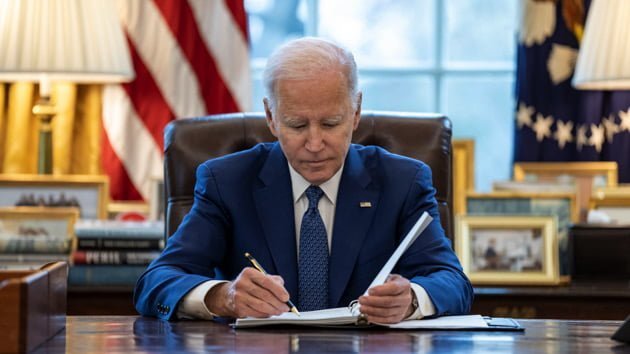(WASHINGTON) — Lawmakers are staring down a fast-approaching deadline to raise the debt ceiling or risk default as early as June 1, but the timeline to reach a solution is actually much shorter.
Memorial Day recess for the House and Senate and President Joe Biden’s upcoming travel shrink the number of working days for lawmakers to come to a debt ceiling deal by June, which is when Treasury Secretary Janet Yellen warned the federal government could become unable to pay all of its bills on time.
Yellen, whose estimate relied on the most recent data, wrote she could not definitively say when the so-called “X-date” for default would begin.
In total, according to tentative House and Senate calendars, both chambers will be in session at the same time for just eight days before the end of May.
“Time is of the essence,” said Shai Akabas, the director of economic policy at the Bipartisan Policy Center. “The clock is ticking.”
The House and Senate each have roughly a dozen working days before the end of May. Though the schedules are subject to change, the House is set to be out of town starting May 26 and will return on June 5, while the Senate will be away from May 22 to May 29.
Complicating the issue further is Biden’s schedule: the president is traveling to Japan for a meeting with G-7 leaders from May 19 to May 21, followed by a trip to Australia for the Quad Leaders’ Summit on May 24.
White House press secretary Karine Jean-Pierre deflected when asked last week if Biden would change his itinerary for the debt ceiling showdown as he did as vice president in 2011, stating she had no changes to share at the time.
On Tuesday, Biden and top congressional leaders will gather at the White House for debt ceiling talks. It will be the first meeting between House Speaker Kevin McCarthy and Biden on the issue since February.
Since then, House Republicans narrowly passed a bill to raise the debt ceiling for one year while also enacting steep government spending cuts. The White House and Democrats, meanwhile, continue to demand a clean debt ceiling increase not tied to federal spending.
“There have been some small steps in the past week or so with the passage of the House legislation and the invitation of the congressional leaders to the White House,” said Akabas. “But we’re still in the early stages of these discussions. So there’s a lot that remains to be done, and not that much time. We need to see an acceleration in these activities.”
Ahead of Tuesday’s meeting, the two parties still appeared adamantly opposed on who bears responsibility for addressing the debt ceiling.
Biden on Friday slammed “MAGA Republicans” for what he called a “manufactured crisis” on the debt ceiling.
“Let’s get it straight. They’re trying to hold the debt hostage to us to agree to some draconian cuts, magnificently difficult and damaging cuts,” he said, arguing the 2024 budget and the debt ceiling are two unrelated issues.
McCarthy, in response to Yellen’s warning about a possible June 1 default, was resolved House Republicans “did their job” when they passed the Limit, Save, Grow Act.
“After three months of the Biden administration’s inaction, the House acted, and there is a bill sitting in the Senate as we speak that would put the risk of default to rest,” McCarthy said. “The Senate and the President need to get to work — and soon.”
Americans, too, are divided on who they would blame for a default. A new ABC News/Washington Post poll found 39% would mainly blame the Republicans in Congress, while 36% said they’d mainly blame Biden and 16% would blame both parties equally.
Last week, Office of Management and Budget Director Shalanda Young signaled the White House would be open to a short-term fix on the debt limit.
“The important thing to do is to make sure we do this and leave the drama behind, regardless of what length we end up in,” Young said.
Young echoed other administration officials who’ve sounded the alarm on the potential political and financial risks of a default.
Director of National Intelligence Avril Haines testified last week that U.S. adversaries like China and Russia could seize on a default, and economists have painted a grim picture for Americans’ pocketbooks if the U.S. were unable to pay bondholders and other bills.
“Of course, we’re concerned,” Young said. “We’re calling on the reasonable people in this town to do the right thing.”
Copyright © 2023, ABC Audio. All rights reserved.





